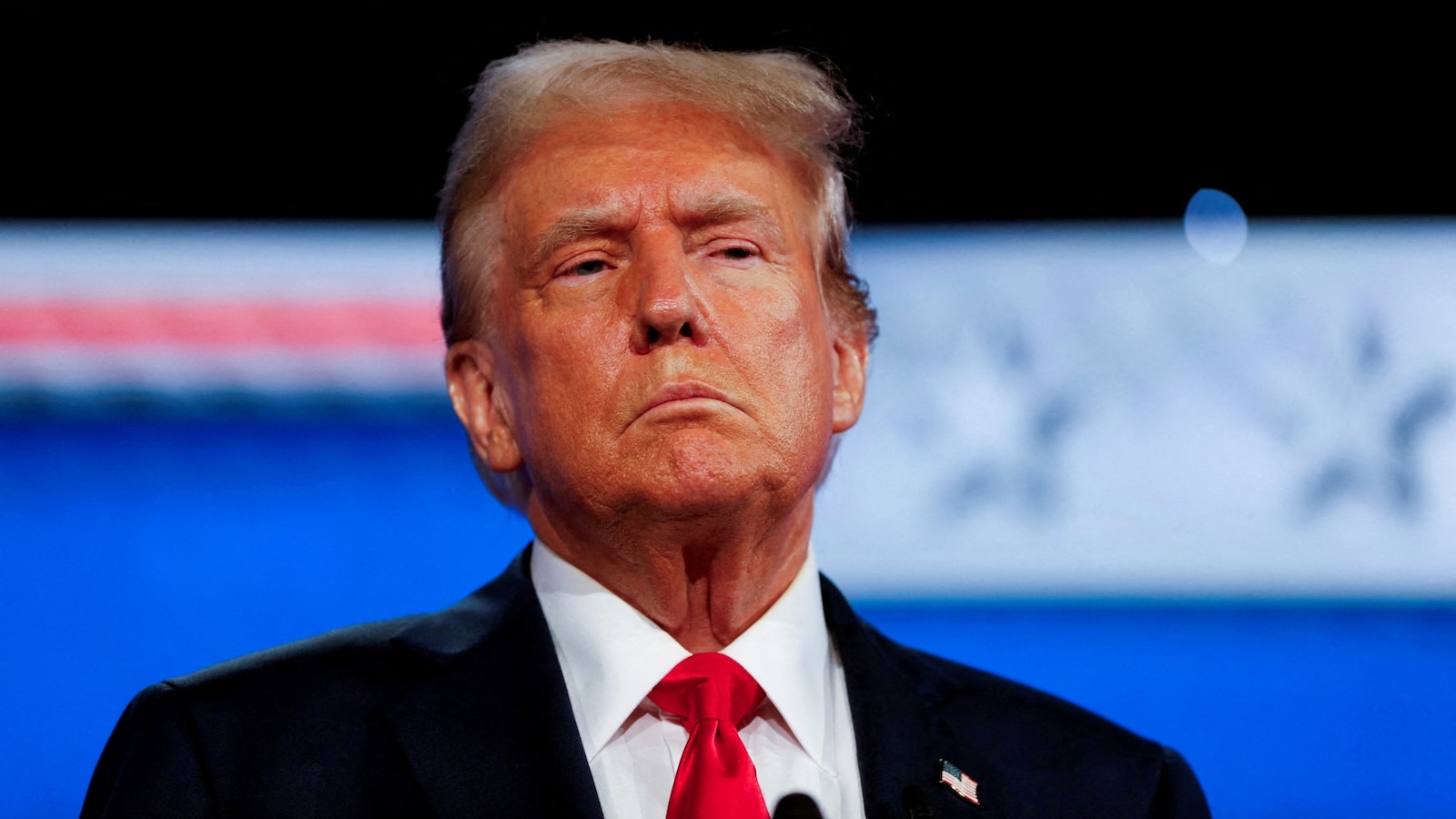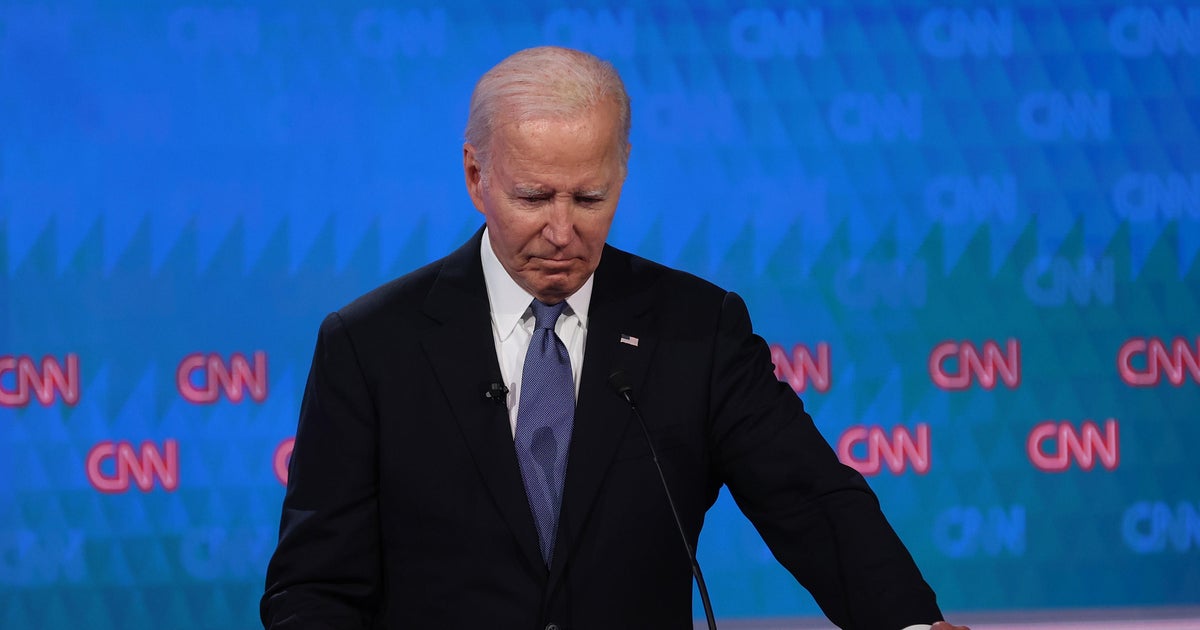From the opening bell of Thursday night’s presidential debate, the first of two ahead of the 2024 U.S. election in November, U.S. President Joe Biden seemed off. His voice was faint and raspy—which the Biden campaign later said was from a badly timed cold. The 81-year-old commander in chief repeatedly lost his train of thought and struggled to articulate his talking points. With just over four months to go before Election Day, alarmed Democratic Party insiders openly wondered if Biden should be replaced as the party’s nominee.
That’s not unheard of in U.S. history. In 1968, a little over seven months before that year’s election was to be held, then-President Lyndon Johnson shocked the nation by announcing he was dropping his reelection bid after his support for the Vietnam War nearly cost him a key primary.
But in most other democracies, a candidate shake-up seven months before an election wouldn’t be odd at all, and the idea of holding a debate more than four months out from Election Day would be unheard of.
That’s especially the case in parliamentary democracies, where elections can be called at any time if the requisite circumstances are met. The United Kingdom has a six-week campaign this year. Mexico’s official campaigning period began on March 1, just three months before the general election, the same as in 2018. Brazilian candidates had just two months to campaign in 2022.
Long election seasons are not the norm. In most nations, there are no primaries, and party leadership elections are baked into the process—sometimes years in advance. Foreign Policy looked at how several other European, Latin American, and Oceanic democracies get the vote wrapped up much faster than the United States.
Shorter Campaign Seasons
Before a U.S. presidential candidate gets to a debate, they have to declare they are running and go through six months of caucuses and primaries—starting with Iowa, New Hampshire, Nevada, Florida, and the “Super Tuesday” states.
Then, when all those votes and delegates are counted, there are still another five months of party nominating conventions, debates, stump speeches, and early voting before Election Day. That’s also the length of the process for the 33 Senate races and 435 House races every two years.
Almost everywhere else in the world, that’s not the case. In the United Kingdom, the equivalent of the long primary system that produces the official U.S. presidential candidates for the two major parties happens long before the election itself. Keir Starmer, the Labour Party leader, was elected to that position in 2020. Prime Minister Rishi Sunak took over the Conservative Party—and 10 Downing Street—in October 2022 after his opponents withdrew.
In France, President Emmanuel Macron called for a snap parliamentary election on June 9. It bakes the primary into the process: The first round of voting will be on Sunday, followed by runoff elections on July 7 for candidates that don’t win by an outright majority. And in neighboring Germany, once nominees have been decided, they traditionally have just four to six weeks to hit the campaign trail.
Even India, the world’s largest democracy, has fewer voting days than the United States when you take the U.S. primaries into account. The country held six weeks of phased elections in April and May that returned Prime Minister Narendra Modi to power.
Just south of the United States, in Mexico—which recently elected its first female president, Claudia Sheinbaum—campaigning is limited to a three-month stretch. Candidates were officially allowed to begin campaigning on March 1, while the vote was scheduled on June 2.
And in Brazil, presidential hopefuls’ allotted campaigning time is even more truncated. During the country’s last election in 2022, which pitted then-incumbent Jair Bolsonaro against former President Luiz Inácio Lula da Silva, campaigning officially kicked off on Aug. 16 —giving both men less than two months to rally support ahead of the Oct. 2 vote.
Centralized Election Systems
Although there are federal laws protecting voting rights that apply to all Americans regardless of where they are, presidential elections in the United States are not a centralized affair. Voters actually cast their ballot for president in over 10,000 local elections whose rules are set by the individual states and which are conducted by local governments. This means that when and how you vote—and even whether you’re eligible to vote at all—can and do vary state by state and even sometimes county by county.
While the U.S. election system—including the Electoral College that elects the president—is in part derived from the Constitution, the United Kingdom doesn’t have a single unified constitution, and election laws have been updated by successive Parliaments over the years.
But everything is centralized. By law, the United Kingdom must hold elections every five years. But in effect, the prime minister—who is also a member of Parliament—can call a snap election at any time.
Once King Charles III gave Sunak the go-ahead to dissolve Parliament in May, the cabinet remained in place, but the U.K. House of Commons no longer had any members—the 650 MPs stop representing their districts until July 4, the date of the election. (Sunak had until December to call an election.)
France is the same way. The whole process will be wrapped up in just under a month, with the hope that negotiations for a new governing coalition can be done in time for the opening ceremony of the Paris Olympics at the end of July.
There are a variety of factors that allow the French system to move faster than the United States that all lean on centralization of the vote: a single contest being on the ballot in each national race—either for president or parliament; elections being administered directly by the French Ministry of Interior instead of 50 U.S. states, as well as territories and the District of Columbia, that have their own laws and certification requirements; and the country being spread out over just one time zone instead of six.
And there’s no Electoral College, meaning no drawn-out count like the tally in the U.S. House of Representatives on Jan. 6, 2021, that a pro-Trump mob violently disrupted. In fact, France has projected results available almost immediately after the vote, which are certified later.
Lack of Money in Politics
In the United States, political advertising is ubiquitous—so much so that members of Congress often spend more of their time at their party committees dialing for dollars to get on the airwaves than they do in their congressional offices working on legislation. While candidates face contribution limits, they are not bound by any restrictions on how much they can spend. U.S. presidential candidates raised nearly $4 billion in 2020.
“The implications of no spending limits are pretty profound,” Ray La Raja, a professor at the University of Massachusetts Amherst, said at a recent U.S. State Department briefing. “Without ceilings politicians have an incentive to raise a lot of money, and then additionally many groups get involved because they can spend unlimiting.”
While Washington isn’t alone in this practice, many countries around the world impose sharp restrictions on candidates’ political spending and contribution numbers, including France, Belgium, Canada, Chile, Greece, Iceland, Ireland, Israel, Japan, South Korea, Poland, and Slovenia. A handful of other nations, including the United Kingdom, Hungary, Italy, New Zealand, and Slovakia, limit spending but place no restrictions on the donations that candidates can receive.
Those policies often tie into the length of a country’s campaign period. In the United Kingdom, for example, one reason that its elections move quickly is to limit the amount of money that can be spent on campaigns.
Labour, the Conservatives, and other political parties can only spend about $70,000 for each parliamentary seat they want to contest—just a bit north of $58 million if they want to go for all 632 constituencies, including average cost per candidate. The number rises with inflation, too, but it decreases as the vote gets closer.
In France, the law limits the total amount of money that presidential candidates can spend, and the government pays back up to half of what is spent on the campaign trail—with the idea of capping individual donations. While the U.S. Supreme Court’s Citizens United decision allowed anonymous donors to give unlimited amounts of money to so-called super PACs, short for political action committees, campaign finance law prohibits similar actions in many European states.
All of this means that U.S. campaign seasons are, by global standards, abnormally long. In many countries, the run-up to a general election—or a party leadership election—is a process that can take place in a matter of weeks, not several months, making it difficult to swap out candidates in the heat of an election season. In the United States, though, there is still plenty of time before the November election for the parties to change their minds about their nominee.











